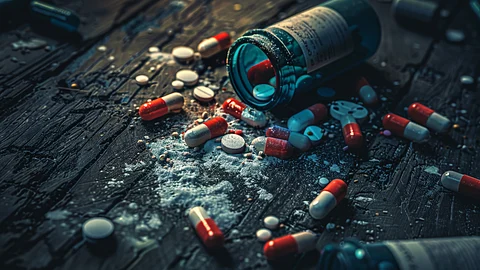India’s top drug regulator, the Central Drugs Standard Control Organisation (CDSCO), has identified 60 medicines as “not of standard quality” in its April 2025 alert. These include eye drops and IV fluids that have previously been linked to serious health events such as blindness in the US and maternal deaths in Karnataka.
The drugs were found to be of poor quality in tests for sterility, contamination, pH levels, and wrong dose, thus having serious implications for patient safety, especially in emergencies and long-term care.
Eye drops and IV fluids fail key quality testing.
Among others, carboxymethylcellulose sodium eye drops, which are used to treat dry eyes, have been highlighted. Three batches manufactured by Martin & Brown Biosciences from Himachal Pradesh failed the tests for sterility, pH, and levels of active ingredient in the drug. These drops evoke a scenario quite similar to US recalls in 2023 concerning vision loss and infection.
Compound sodium lactate injection (Ringer’s lactate) was again flagged in 2024 after multiple maternal deaths from Karnataka were linked.. The most recent failed batch was manufactured by Ecolife Healthcare, while the previous batch came from Paschim Banga Pharmaceuticals.
Sodium chloride IV fluid linked to maternal deaths and illness in 47 other patients in West Bengal also failed recent tests. The product, manufactured by Captab Biotec, contains bacterial endotoxins, which can trigger life-threatening septic shock.
Important injectable drugs don’t make the cut.
The latest findings from CDSCO call for better quality control, especially for medications used in emergency rooms, surgeries, and for chronic care. Patients and healthcare workers should be on alert and report any side effects they notice. With worries about counterfeit drugs on the rise, keeping a close eye on regulations is more crucial than ever. Recently, a few life-saving injections didn't meet CDSCO quality standards:
Bupivacaine Hydrochloride, a local anesthetic, had harmful particles in it.
Iron Sucrose Injection, which is given for anemia, had the wrong pH and alkalinity.
A mix of Ceftriaxone and Sulbactam antibiotics was found to be contaminated with bacterial endotoxin.
Other antibiotics, like Amikacin Sulfate and Gentamicin, also showed contamination, which could lessen their effectiveness or lead to serious complications.


